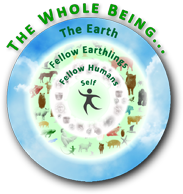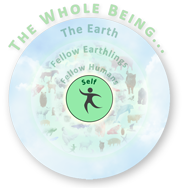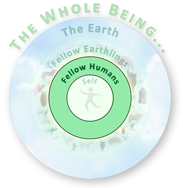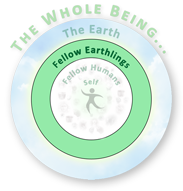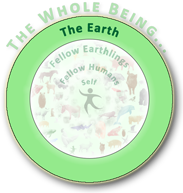Resource Library
To narrow down the list to only resources personally endorsed by CNCL, tick the “CNCL-Endorsed” box.
Please let us know if you find any errors or dead links.
Click here
for a list of…![]()
Broad-Coverage Independent News
& Media Sites
“The Peace Alliance empowers civic action toward a Culture of Peace…One of the unique things that the Peace Alliance does is to focus not only on doing, and also being. We shift human understanding toward empathy, compassion and connection, thus fostering interdependence among citizens and dialogue toward common ground and peaceful solutions to conflict. This is the only approach that will work. Our Peace Alliance Council Leads establish what they feel are the clear and direct actions, through education, advocacy and collaboration, to expand and reinforce this shift to compassionate understanding and an expanded culture of peace.” “Vision: Peaceful local, national and global communities. Mission: To build peaceful relationships among people of all ages and cultures – from personal to global – through education , research and action. Values: In pursuing this mission we are committed to honour Te Tiriti O Waitangi, human rights and the peaceful resolution of conflict and to modelling peace-making values within the Foundation and beyond. “ “The People’s Institute for Survival and Beyond (PISAB), is a national and international collective of anti-racist, multicultural community organizers and educators dedicated to building an effective movement for social transformation. The People’s Institute believes that racism is the primary barrier preventing communities from building effective coalitions and overcoming institutionalized oppression and inequities. Through Undoing Racism®/Community Organizing Workshops, technical assistance and consultations, The People’s Institute helps individuals, communities, organizations and institutions move beyond addressing the symptoms of racism to undoing the causes of racism so as to create a more just and equitable society.” “Engaging, Educating, and Strengthening the Next Generation of Religious and Civic Leaders in the United States.” Book: “There is a deep chasm between the promises of the new global capitalism and the reality of social breakdown, spiritual emptiness, and environmental destruction it is leaving in its wake. In this important book, David Korten makes a compelling and well-documented case that capitalism is actually delivering a fatal blow not only to life, but also to democracy and the market…Korten outlines numerous specific actions to free the creative powers of individuals and societies through the realization of real democracy, the local rooting of capital through stakeholder ownership, and a restructuring of the rules of commerce to create “mindful market” economies that combine market principles with a culture that nurtures social bonding and responsibility.” “When the Soviet Union collapsed in 1990, Cuba’s economy went into a tailspin. With imports of oil cut by more than half – and food by 80 percent – people were desperate. This film tells of the hardships and struggles as well as the community and creativity of the Cuban people during this difficult time. Cubans share how they transitioned from a highly mechanized, industrial agricultural system to one using organic methods of farming and local, urban gardens. It is an unusual look into the Cuban culture during this economic crisis, which they call “The Special Period.” The film opens with a short history of Peak Oil, a term for the time in our history when world oil production will reach its all-time peak and begin to decline forever. Cuba, the only country that has faced such a crisis – the massive reduction of fossil fuels – is an example of options and hope.” Book: “The idea of non-violence (passive-resistance) has always seemed beautiful but too good to be true. As a practical proposition it arouses scepticism and ridicule. But Mr Gregg is strangely convincing. He marshals the whole weight of contemporary knowledge,and uses the experience of Gandhi,who has employed non-violence methods on a wider scale and with greater success than any other figure in history. Non-violent resistance is the doctrine of absolute pacificism. In theory, it recognizes no use of violence as legitimate in practice it includes all human relations,national and social as well as individual. Contents Include Modern Examples of Non-Violent Resistance Moral Jiu-Jitsu What Happens Utilising Emotional Energy How is Mass Non-Violent Resistance An Effective Substitute for War The Class Struggle and Non-Violent Resistance Non-Violence and the State Further Political Aspects Biological Considerations Doubts and Queries Preperation for Non-Violence Further Understanding Self Discipline Group Training and Discipline Notes by Chapters” “A gripping, deeply informative account of the plunder, hypocrisy, and mass violence of plutocracy and empire; insightful, historically grounded and highly relevant to the events of today.” “This is the final dharma talk of the 2000 21-Day Retreat, The Eyes of the Buddha, offered from Lower Hamlet at Plum Village by Thich Nhat Hanh on June 20, 2000. The primary theme of the dharma talk is the Noble Eightfold Path. In Part I, we begin with an introduction to deep listening – protected by compassion – followed by a teaching on the Noble Eightfold Path threaded with teachings on the Five Mindfulness Trainings. 1.Right View 2.Right Thinking 3.Right Speech 4.Right Action 5.Right Diligence 6.Right Livelihood 7.Right Mindfulness 8.Right Concentration. In Part II, beginning at 1-hour and 8-minutes we turn to the topics of violence, nonviolence, UNESCO’s Manifesto 2000, and dependent co-arising.” Book: “Excerpts from Thoreau’s journals concerning civil disobedience, conscience, law, government, slavery, war, and economics. These passages are what Thoreau considered to be “the price of freedom” – his attempts to mine the richest vein of observations about human conscience and political philosophy, and to present what he found free from all censorship.” “A voice for peace, social justice, and the common good! Since 1909, The Progressive has aimed to amplify voices of dissent and those under-represented in the mainstream, with a goal of championing grassroots progressive politics. Our bedrock values are nonviolence and freedom of speech. Based in Madison, Wisconsin, we publish on national politics, culture, and events including U.S. foreign policy; we also focus on issues of particular importance to the heartland. Two flagship projects of The Progressive include Public School Shakedown, which covers efforts to resist the privatization of public education, and The Progressive Media Project, aiming to diversify our nation’s op-ed pages. We are a 501(c)(3) nonprofit organization. We publish multiple stories every day on our website, and also produce a bimonthly magazine featuring investigative reporting, cultural and political analysis, and poetry. Recent issues have focused on climate change, and being “othered” in today’s America.” Book: “Through an absorbing investigation into recent, high-profile scandals involving one of the largest kosher slaughterhouses in the world, located unexpectedly in Postville, Iowa, Aaron S. Gross makes a powerful case for elevating the category of the animal in the study of religion. Major theorists have almost without exception approached religion as a phenomenon that radically marks humans off from other animals, but Gross rejects this paradigm, instead matching religion more closely with the life sciences to better theorize human nature. Gross begins with a detailed account of the scandals at Agriprocessors and their significance for the American and international Jewish community. He argues that without a proper theorization of “animals and religion,” we cannot fully understand religiously and ethically motivated diets and how and why the events at Agriprocessors took place. Subsequent chapters recognize the significance of animals to the study of religion in the work of Ernst Cassirer, Emile Durkheim, Mircea Eliade, Jonathan Z. Smith, and Jacques Derrida and the value of indigenous peoples’ understanding of animals to the study of religion in our daily lives. Gross concludes by extending the Agribusiness scandal to the activities at slaughterhouses of all kinds, calling attention to the religiosity informing the regulation of “secular” slaughterhouses and its implications for our relationship with and self-imagination through animals.” “The Radiation and Public Health Project (RPHP) is a nonprofit educational and scientific organization, established by scientists and physicians dedicated to understanding the relationships between low-level, nuclear radiation and public health.” “The Random Acts of Kindness (RAK) Foundation is a small nonprofit that invests our resources into making kindness the norm. We are rooted in the belief that all people can connect through kindness and that kindness can be taught. We follow a simple framework for everything we do. Inspire -> Empower -> Act -> Reflect -> Share. Our evidence-based Kindness in the Classroom® curriculum gives students the social and emotional skills needed to live more successful lives. Our workplace kindness calendar shows companies how easy it is to change workplace culture through simple kind gestures. We create a common language between schools, work and home with all of our resources.” “The Real News Network (TRNN) produces independent, verifiable, fact-based journalism that engages ordinary people in solving the critical problems of our times. As legendary journalist Ida B. Wells said, “The people must know before they can act, and there is no educator to compare with the press.” We examine the underlying causes of the chronic problems, and investigate and report on effective solutions and models for change. We don’t just cover people in high office or limit news to the partisan horse race for power. People who fight for human rights and work for solutions are newsmakers. We believe that real change will be driven by the people who need it most. While we report on and investigate all important issues of social and economic concern, we consider the climate change crisis an existential threat. In all of our programming and journalism, the impact of environmental degradation and the climate crisis, especially on marginalized people, and the urgency of finding solutions will be front and center. Our motto is “The Future Depends on Knowing.”” “Society has become increasingly aware of the suffering of animals due to human beings. Many will be familiar with the shocking realities of factory farming, or will have seen horrific images of animal testing, neglected and abused pets, the systematic murder of animals in slaughter-houses. Humans are responsible for a large portion of animal suffering, and there is much to be done in terms of eradicating this great source of injustice. What is less well known about, but perhaps even more morally relevant, is suffering caused to animals by other animals, or by Nature itself. Wild animals undergo torture. It is commonplace for creatures to be eaten alive by predators. Intense competition for resources means that starvation, one of the most agonising ways to die, is the norm for many species. Illnesses ravage their victims, injuries are left to fester; only a fortunate minority of any member of a species is able to lead the full, enjoyable life we typically imagine of animals in the natural world. The gruesome existence of wild animals needs to be acknowledged.” “Welcome to The Resurgence Trust, where you’ll find positive, informed and original perspectives on environmental issues, activism, social justice, arts and ethical living…The Resurgence Trust is a UK-based educational charity that has become the flagship voice of the environmental movement across the globe. Our mission is to inspire each other to help make a difference and find positive solutions to the global challenges we now face.” Book: “Discover the Real Revolution Unfolding across America. America faces huge challenges—climate change, social injustice, racist violence, economic insecurity. Journalist Sarah van Gelder suspected that there were solutions, and she went looking for them, not in the centers of power, where people are richly rewarded for their allegiance to the status quo, but off the beaten track, in rural communities, small towns, and neglected urban neighborhoods. She bought a used pickup truck and camper and set off on a 12,000-mile journey through eighteen states, dozens of cities and towns, and five Indian reservations. From the ranches of Montana to the coalfields of Kentucky to the urban cores of Chicago and Detroit, van Gelder discovered people and communities who are remaking America from the ground up. Join her as she meets the quirky and the committed, the local heroes and the healers who, under the mass media’s radar, are getting stuff done. The common thread running through their work was best summed up by a phrase she saw on a mural in Newark: “We the People LOVE This Place.” That connection we each have to our physical and ecological place, and to our human community, is where we find our power and our best hopes for a new America.” Book: “A trillion-dollar industry, the US non-profit sector is one of the world’s largest economies. From art museums and university hospitals to think tanks and church charities, over 1.5 million organizations of staggering diversity share the tax-exempt 501(c)(3) designation, if little else. Many social justice organizations have joined this world, often blunting political goals to satisfy government and foundation mandates. But even as funding shrinks, many activists often find it difficult to imagine movement-building outside the non-profit model. The Revolution Will Not Be Funded gathers essays by radical activists, educators, and non-profit staff from around the globe who critically rethink the long-term consequences of what they call the “non-profit industrial complex.” Drawing on their own experiences, the contributors track the history of non-profits and provide strategies to transform and work outside them. Urgent and visionary, The Revolution Will Not Be Funded presents a biting critique of the quietly devastating role the non-profit industrial complex plays in managing dissent.” “The Ruckus Society is a multi-racial network of trainers dedicated to providing the necessary tools, preparation, and support to build direct action capacity for ecological justice and social change movements. We work with Indigenous communities and other communities of color working to preserve their homes and environments and for climate justice.”Found 2072 Results
The Peace Alliance
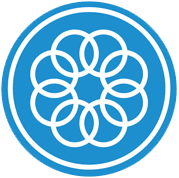
The Peace Foundation

The People’s Institute

The Pluralism Project
![]()
The Post-Corporate World: Life After Capitalism
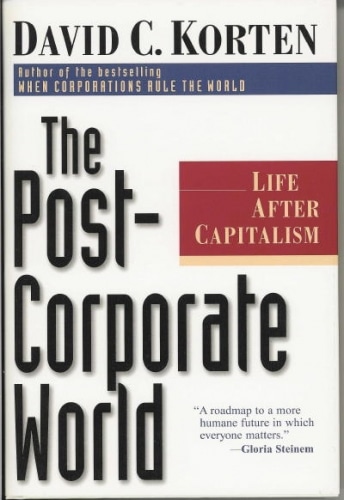
The Power of Community: How Cuba Survived Peak Oil (2006)
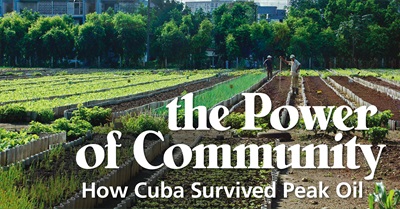
The Power of Non-Violence
The Power Principle: Corporate Empire and the Rise of the National Security State (2012)
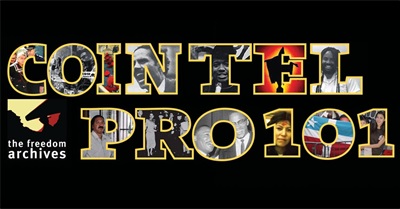
The Practice for Engaged Buddhism
![]()
The Price Of Freedom: Political Philosophy From Thoreau’s Journals
The Progressive
The Question of the Animal and Religion: Theoretical Stakes, Practical Implications
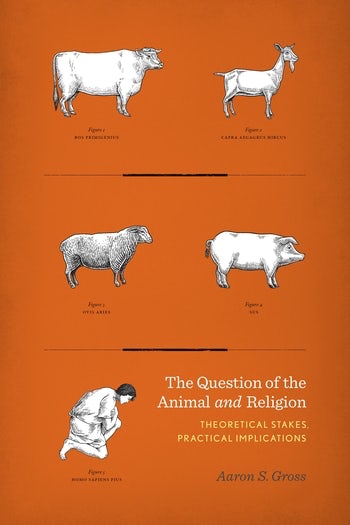
The Radiation and Public Health Project (RPHP)

The Random Acts of Kindness (RAK) Foundation

The Real News Network
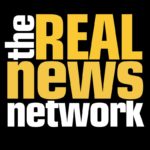
The Relevance of Wild Animal Suffering
![]()
The Resurgence Trust
The Revolution Where You Live: Stories from a 12,000-Mile Journey Through a New America
The Revolution Will Not Be Funded: Beyond the Non-Profit Industrial Complex
The Ruckus Society
![]()

